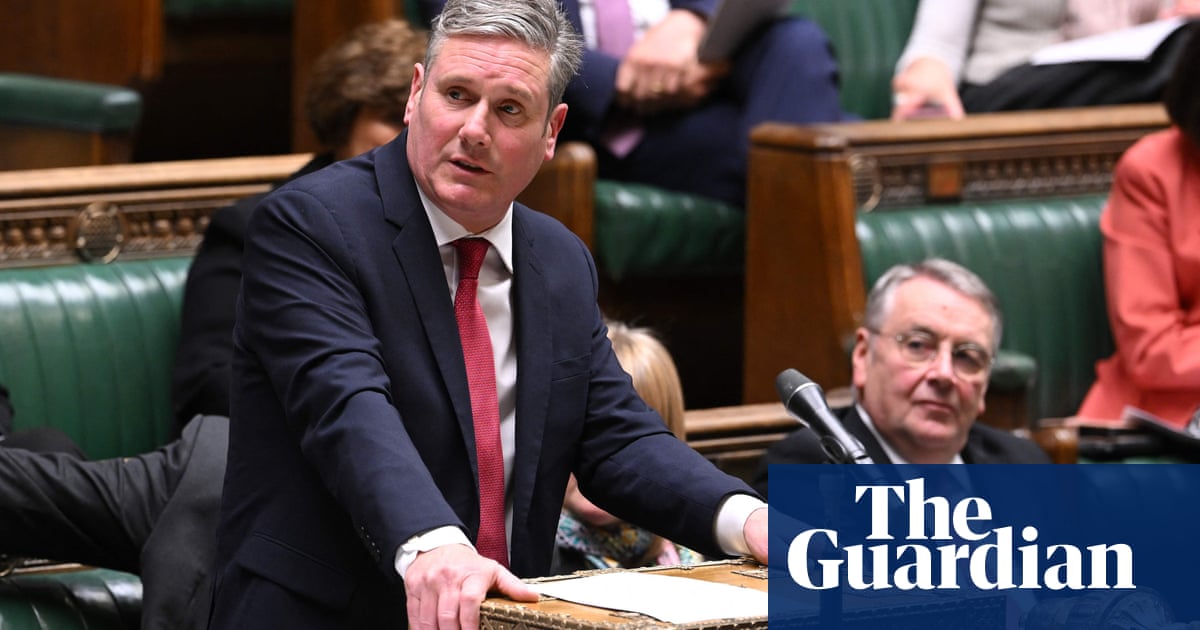
For decades, many on the left have hankered for the social democratic political settlement of other European countries. Britain, it has been said, should ditch Thatcherism once and for all, and embrace higher taxes as the means of improving public services.
Now it has happened. As a result of the new health and social care levy, taxation will rise to its highest sustained level on record. This is the work not of a party of the left but of one of the right. Rishi Sunak may say he is a fiscal hawk who favours a small state and low taxes, but he is a tax-and-spend chancellor. Sajid Javid may have a picture of the Iron Lady on his office wall, but he is a tax-and-spend health secretary.
If the Labour party is ever to return to power, it must stop repeating the line parroted by Keir Starmer at prime minister’s questions that this is the “same old Tory party”. This is lazy thinking. Boris Johnson’s government has tacked left on the economy, which is why he has taken stick from rightwing papers and strained the Tory party’s relationship with business.
The good news for Starmer is that Johnson is doing this because the left has won the economic and political argument. Austerity didn’t work, and voters can see the damage it caused. There is now an appetite for higher taxes and state spending in a way there wasn’t after the financial crisis of 2008. Yet while voters are warming to social democracy, they don’t seem to want the opposition to provide it. If the public wants left-of-centre policies to be delivered by a right-of-centre government, Labour faces a significant problem.
A couple of decades ago, this was not the case. Labour’s 2001 and 2005 election victories were the result of the former chancellor Gordon Brown setting the terms of economic debate. In both elections, the Tories were forced to say which areas of public spending they would axe to fund tax cuts. They failed to make a convincing case. But after the 2008 financial crisis, Labour lost control of the agenda. In the 2010 election, voters faced a choice between two parties committed to reducing the budget deficit. In that fight, the Conservative party was always going to be the winner.
Now the pendulum has swung back towards a position where the public is anti-cuts and willing to countenance higher taxes, provided they are put to good use. Under Johnson, the Tories have been quick to respond to this shift in attitudes.
That’s not to say every piece of rightwing ideology has been ditched. The government is going ahead with plans to remove the £20 weekly uplift to universal credit, a cut that will cause real hardship to low-income families. Public sector pay will continue to be squeezed. There is still no sign of the long-awaited employment bill that Johnson said would reform zero-hours contracts and the gig economy. In his protracted discussions with No 10, Sunak also insisted that the policies announced this week were funded by higher taxes rather than extra borrowing. Politically, such financial orthodoxy makes sense for the Tories, who are trying to tell voters they can have the anti-austerity policies that Jeremy Corbyn offered without losing grip on the public finances.
Corbyn lost the 2019 election in part by making spending pledges that voters saw as unrealistic. Starmer was focused on restoring the Labour party’s credibility when he became leader, but his cautious approach is debilitating. It is now easier to see what Labour is against than determine what it stands for.
Although Labour has criticised the new levy, the party has no concrete ideas of its own about how the extra spending would be funded. If the party thinks a wealth tax or higher national insurance contributions for the better off could be the solution to the Tories’ new levy, both of which would raise serious amounts of money, it has not said so. Labour does not believe in modern monetary theory (MMT), the idea that a government can spend as much as it wants, inflation permitting, provided it can print the money in its own currency. (Corbyn briefly flirted with MMT but soon went off the idea.) Nor is Labour in favour of higher national insurance contributions to fund the NHS, even though this was precisely what Brown did in his 2002 budget.
Indeed, Starmer seems to think the way to power is to rebrand Labour as the low-tax party. Given the current state of public opinion, Johnson won’t mind that one bit.
Larry Elliott is the Guardian’s economics editor












